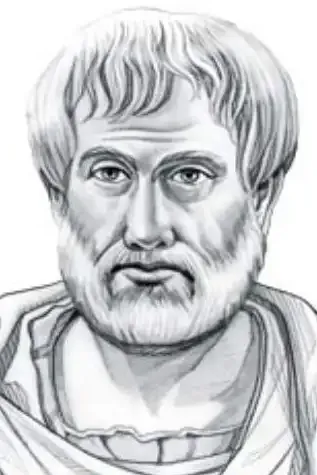
Personal info
Known for
Ultimate Talent
Gender
Male
Birthday
Location
Central Macedonia, Greece
Edit pageAristotle
Biography
Aristotle, one of the greatest philosophers in history, was a student of Plato and the teacher of Alexander the Great. His works laid the foundations for science, logic, politics, ethics, and many other fields of knowledge. Often called “The Father of Western Logic,” Aristotle’s influence continues to shape education and philosophy even after more than two thousand years.
Early Life and Education
Aristotle was born in 384 BCE in Stagira, a small town in northern Greece. His father, Nicomachus, served as a physician to the Macedonian royal family, which introduced Aristotle to the study of biology and nature at an early age.
At the age of 17, Aristotle moved to Athens to study at Plato’s Academy, where he remained for nearly 20 years. Though he admired his teacher, Aristotle eventually developed his own ideas that differed from Plato’s, focusing more on observation and experience than on abstract ideals.
Career and Contributions
After Plato’s death, Aristotle left Athens and spent several years traveling and studying the natural world. In 343 BCE, he was invited by King Philip II of Macedon to tutor his son, Alexander, who later became known as Alexander the Great.
Upon returning to Athens, Aristotle founded his own school, the Lyceum, around 335 BCE. There, he taught philosophy, science, and logic, and encouraged students to observe nature directly—an approach that marked the beginning of empirical science.
Aristotle wrote extensively on a wide range of subjects, including ethics, politics, physics, metaphysics, biology, poetry, and logic. His method of reasoning, known as deductive logic or the syllogism, became the foundation of rational thought for centuries.
In ethics, he emphasized the idea of the “Golden Mean”—the balance between extremes—as the key to a virtuous life. In politics, he argued that humans are naturally social beings and that the best government promotes the common good.
Death and Legacy
After the death of Alexander the Great, anti-Macedonian sentiments grew in Athens, forcing Aristotle to flee to the island of Euboea. He died there in 322 BCE at the age of 62.
Aristotle’s writings profoundly influenced both Islamic and Christian scholars during the Middle Ages and laid the foundation for Western philosophy and science. His logical methods and scientific curiosity helped shape the Renaissance and continue to inspire modern thinkers and researchers.
Conclusion
Aristotle’s life was dedicated to the pursuit of knowledge and truth. Through his logical reasoning, scientific observation, and deep understanding of human nature, he built a framework that continues to guide learning and inquiry today. His legacy endures as one of the most brilliant minds to have ever lived, a true master of wisdom and reason.